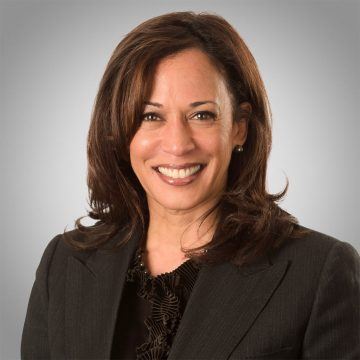by Raji Jayaraman

An American parent who named their child “Kamala Devi” in the 1960s is likely to have been either Indian or a hippie. When I first heard Kamala Harris’ name during the 2020 Democratic presidential race, I assumed it was the latter since she was generically described as a “black woman”. What I have since learned is that her mother, Shyamala Gopalan, was an Indian immigrant. I barely understand my own personal life, so I won’t pretend to have any insight into Kamala Harris’s. Maybe she’s close to her Indian family, maybe she’s not. I’ll never know, and frankly neither will you. The only thing I can safely conclude from this information is that Kamala Harris has an Indian side.
As a country of immigrants, Americans are familiar with diversity even if they are not always accepting of it. Diversity across different people is, however, different from diversity within the same person. Americans seem disoriented by individual diversity. My admittedly rudimentary understanding is that they alleviate this unease by reducing the dimensionality of ethnic, racial or cultural identity in a person. The thankfully obsolete one drop rule is an example of this. Harris’s mother seems to have understood it early on. As Harris explains in a New Yorker profile, her mother “knew that her adopted homeland would see Maya [Kamala’s sister] and me as black girls, and she was determined to make sure we would grow into confident, proud black women.”
We know by now that the description of Harris as a “black woman” is incomplete. The opening paragraph of “Kamala’s story” on her new campaign website describes her as both “Black” and “Indian”, and notes her parents’ immigration to the U.S. from Jamaica and India. Then, in her DNC convention acceptance speech, she gave a shout out to “my uncles, my aunts and my chithis”. Padma Lakshmi, the model-turned-celebrity-chef, explained through tears of joy that chithi meant “auntie” in Tamil. Harris didn’t announce the fact that her mother’s side of the family is Brahmin, but that would have been obvious to any Tamilian looking at Harris’s Indian family photo. So now, on her Indian side alone, we have geography, language, religion and caste in the mix. Sorting all of that out has got to be confusing for anyone.
Oddly enough, Indians don’t seem confused by this at all. Harris’ chithi–thatha revelations have left them jubilant. Tamilians doubly so. They are weeping tears of joy as they sweep their prodigal daughter up in a loving embrace. Tam Brahms are packing their bags in anticipation of their imminent White House sleepover with their favourite magal. (Nobody has heard of the U.S. Naval Observatory.)
Indians’ lack of confusion isn’t just because they are more familiar with the nuances of region, language, religion or caste that form the puzzle of Harris’s Indian identity. There is plenty for Indians to be confused about. Is she black or African American, and what is the difference? Where does Jamaica fit into all of this? Their embrace of Harris comes from the facility middle-class Indians have with diversity within others. This doesn’t necessarily make them tolerant: most Indians will not marry out of caste, let alone religion or race. It just means that they are pragmatic about diversity. Another’s identity, in that sense, is less a definition than it is a menu of options.
To the Tam Brahm in me, Kamala Harris resembles nothing so much as a Hindu God whose multiple heads are being revealed one-by-one in some kind of elaborate magic trick. I’m totally fine with this, and I suspect most other Indians are too. “Two faced” is a criticism in English, and I can’t think of a multi-headed character from Greek or Roman mythology who is regarded with either reverence or affection. Cerberus and Hydra are feared and reviled. Janus is, at best, a more philosophical reading of “two faced”.
The Purusha Suktam in the Rig Veda is one of the most commonly recited Sanskrit hymns. It begins by describing the cosmic being, Purusha. Om sahasra shirshaa purushaha. “Purusha has one thousand heads.” This is considered high praise. The Hindu pantheon has millions of Gods with multiple heads, each representing a different quality, ability, or characteristic. Non-Indian Americans look at these faces with bewilderment. Where should they be looking? Who exactly are they addressing? Tamils call the God Muruga (to name just one example) “Arumugam”—the six-faced one—with unalloyed approval. On any given day they would be comfortable talking to all of them, none of them, or to the one with whom they felt the closest affinity…on that particular day.
Kamala Harris is multi-racial? Multi-ethnic? Brilliant. More options for me! Unfortunately, I don’t get to vote and Indian-Americans are unlikely to be pivotal in the election. Where Indians see Kamala Harris’s identities as a menu of options, Americans see a list of ingredients that need to be organized into a coherent meal. I simply don’t know how they are going to manage that with someone whose identity is as complex as hers.
